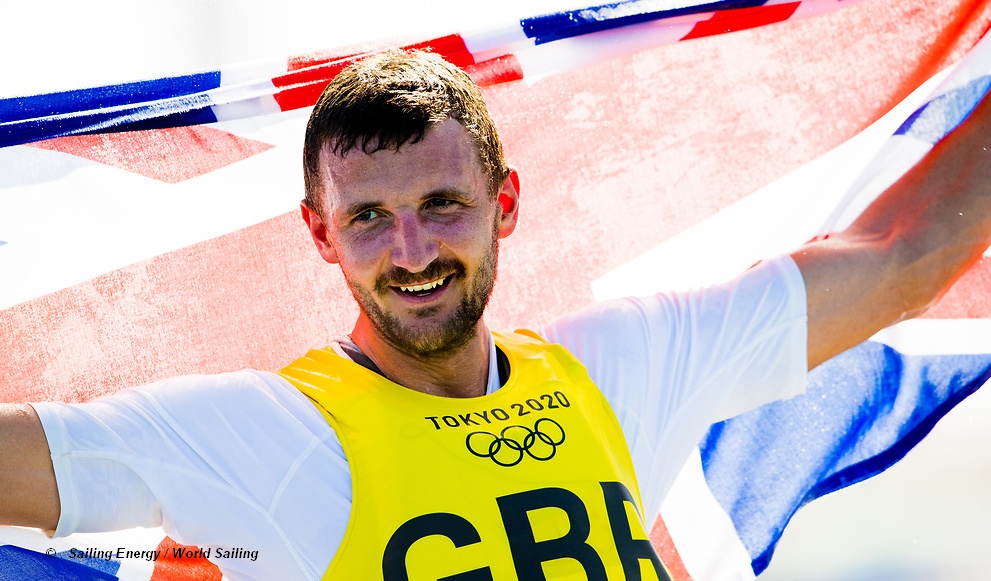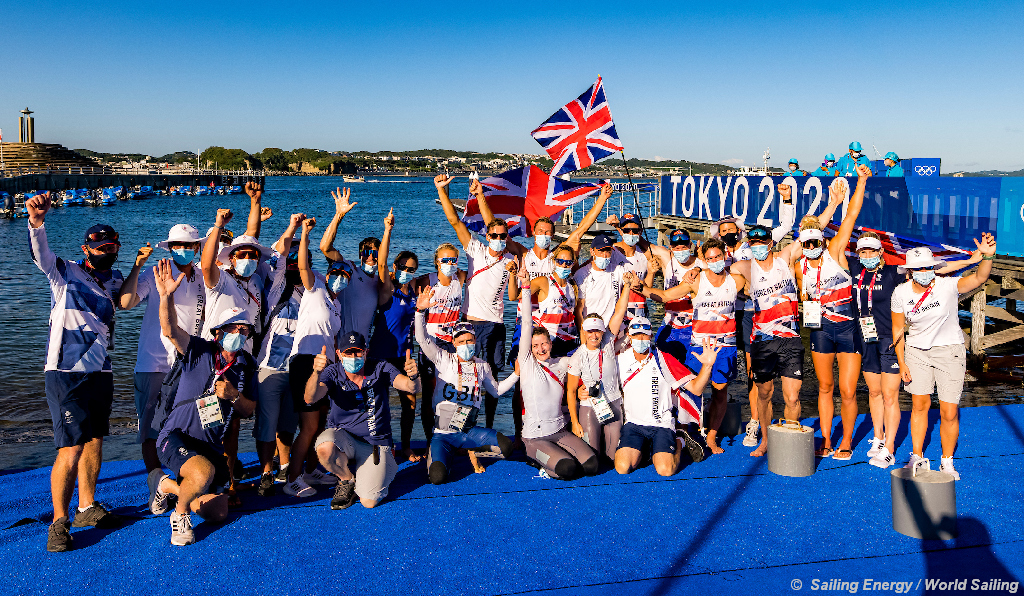Britain took the title of top sailing nation for the fifth time in six Games, with five medals from ten events.
Overall Team GB won 65 medals, 22 of them gold to place fourth in the Tokyo Medal table behind the US (39), China (38)and Japan (27).
The British Sailing team won sailing gold in the Finn for Giles Scott, 470 for Hannah Mills and Eilidh McIntyre, and the 49er for Dylan Fletcher and Stuart Bithell. They also won a silver in the Nacra17 John Gimson and Anna Burnet, and windsurfing bronze for Emma Wilson.
Of the ten sailing events British competitors made the final Medal race in nine events, winning medals in five. A remarkably high standard across the mixture of dinghy, skiff, multihull and windsurfing events.

All this success comes at a cost, in the case of British Sailing £22.3+ million over the four-year Olympic cycle . . . equating to 4.5 million per medal.
The funding of Olympic sports is a mixture of International and individual Nation money-streams.
The much-envied British Sport UK funding for Paris 2024 has already been allocated, so the success or failure of the various sports at Tokyo will not have any immediate effect.
For the Paris cycle, Sailing will receive £21.3 million between 2021 and 2025 plus £3.5 million of Athlete Performance Awards, a total of £24.8 million.
This funding, a mixture of lottery and government money available since 1997, is a major part of the budget of the Royal Yachting Association, which controls the training and selection of the British sailing squad.

Sailing remains the fourth highest-funded British sport behind cycling, athletics, and rowing.
Although the British sailing team does not receive any direct funding from the Olympics, World Sailing, the International Sailing Federation, relies on the International Olympic Association (IOC) for funding and is presently existing on an IOC loan facility while waiting for the next payout.
After the Rio Games the IOC distributed US$540 million with World Sailing receiving US$12 million. A similar amount is expected from the Tokyo Games, despite the lack of spectators and extra costs of the delay.
For the IOC this has been a case keeping its nerve and pulling a successful Games out of what was looking to be a huge disaster back in early 2020, as the coronavirus pandemic ran unchecked around the world . . . Tokyo is left counting the social and economic costs.

Related Post:
UK Sport announce £352m Olympic and Paralympic sport funding


 RSS – Posts
RSS – Posts